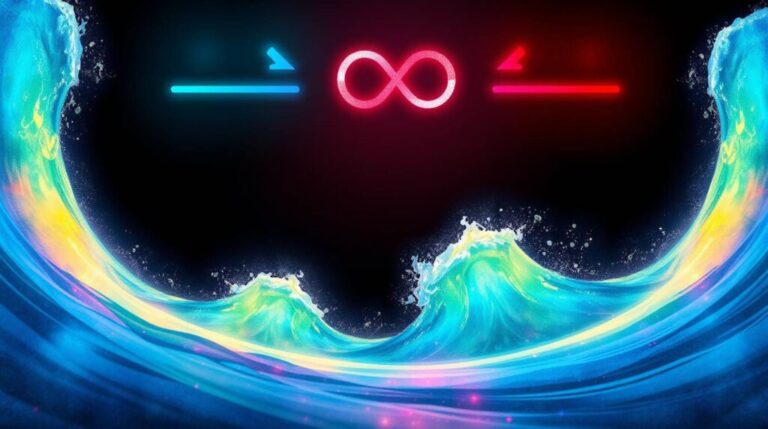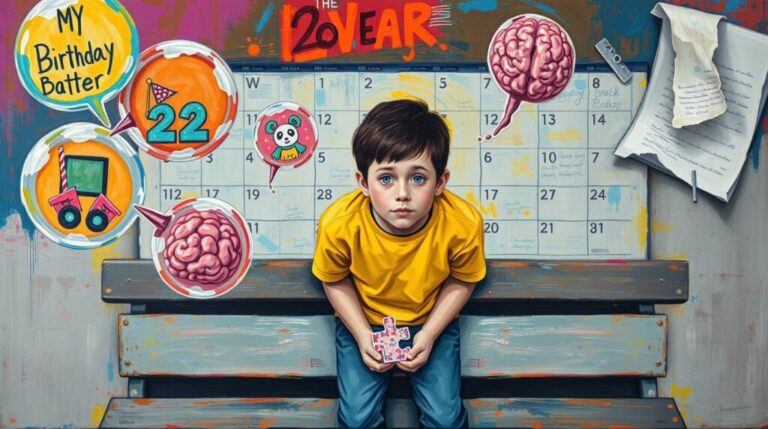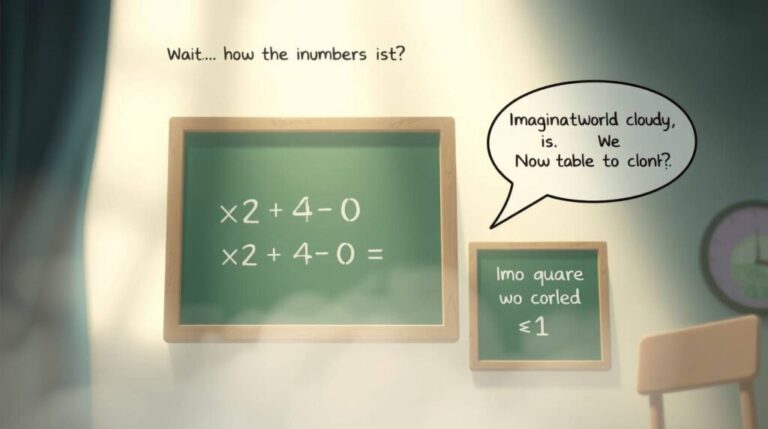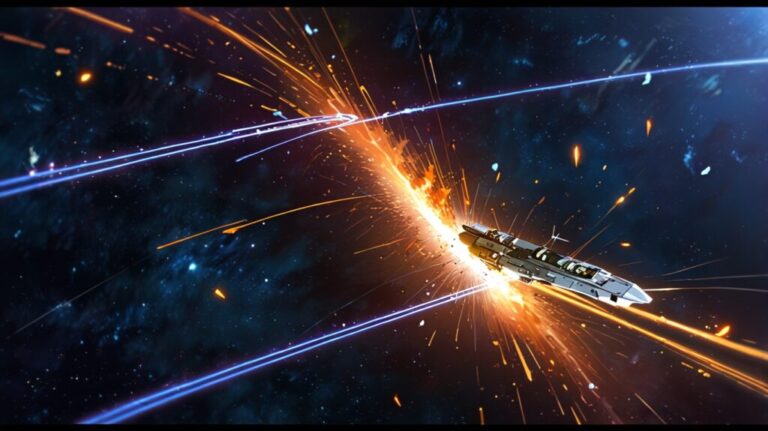Why do isotopes have different nuclear stabilities?
You’re here — which means you’re either prepping for a tough exam or just got curious about why some atoms go boom while others live a chill, stable life. So let’s skip the heavy textbook talk and jump straight into an easy, friend-style breakdown of:
Why Do Isotopes Have Different Nuclear Stabilities?
Alright. First — don’t worry if this “isotopes and nuclear stability” thing sounds like sci-fi jargon. We’re going to break it down so even your little cousin could get it. 😄
🧪 First up: What is an isotope?
Let’s imagine atoms as tiny solar systems. At the center, you’ve got the nucleus — which holds protons (positively charged) and neutrons (neutral). Orbiting around it are electrons (negatively charged).
Now, isotopes are like twins of the same element. They have the same number of protons (which makes them the same element) but different numbers of neutrons.
🧍♂️ Think of it like this: Carbon always has 6 protons.
But:
- Carbon-12 has 6 neutrons.
- Carbon-13 has 7 neutrons.
- Carbon-14 has 8 neutrons.
Same “name” (Carbon), but they’re wearing slightly different outfits.
⚖️ So… why does this mess with their stability?
Here’s the fun part:
In the atomic world, balance is everything.
Your nucleus doesn’t like being all lopsided. Too many neutrons or too few, and things get awkward. It’s like trying to sit on a wobbly chair — eventually, it collapses (read: becomes radioactive 😬).
🧩 The main reason for different stabilities? It’s the neutron-to-proton ratio.
Yep, that one little ratio decides everything. Here’s why:
- 💥 If there are too many neutrons:
The nucleus becomes too heavy and unstable. It starts to fall apart — slowly (radioactive decay). - ⚡ If there are too few neutrons:
The protons repel each other (remember, they’re all positively charged), and there’s not enough “neutron glue” to hold them together. - 😌 If there’s a just right number (the “golden ratio” for that element):
The nucleus stays stable — happy, chill, and non-radioactive.
This neutron-to-proton ratio is kind of like the “vibes” check for an atom. Too much or too little of either, and the whole thing falls out of harmony.
💣 So What Happens When an Isotope is Unstable?
It tries to “fix” itself.
Unstable isotopes are like overworked people trying to find balance — they throw out extra weight, rearrange things, or even change who they are completely.
This is called radioactive decay.
They might:
- Release particles (like alpha or beta particles)
- Emit energy (gamma radiation)
- Or even turn into a whole new element 😲 (yep, some literally transform!)
—
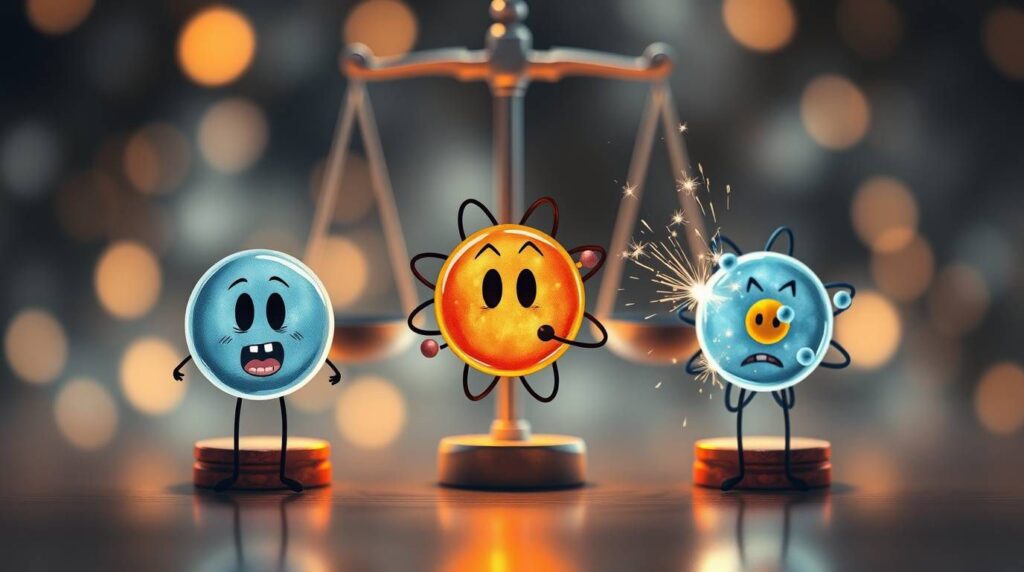
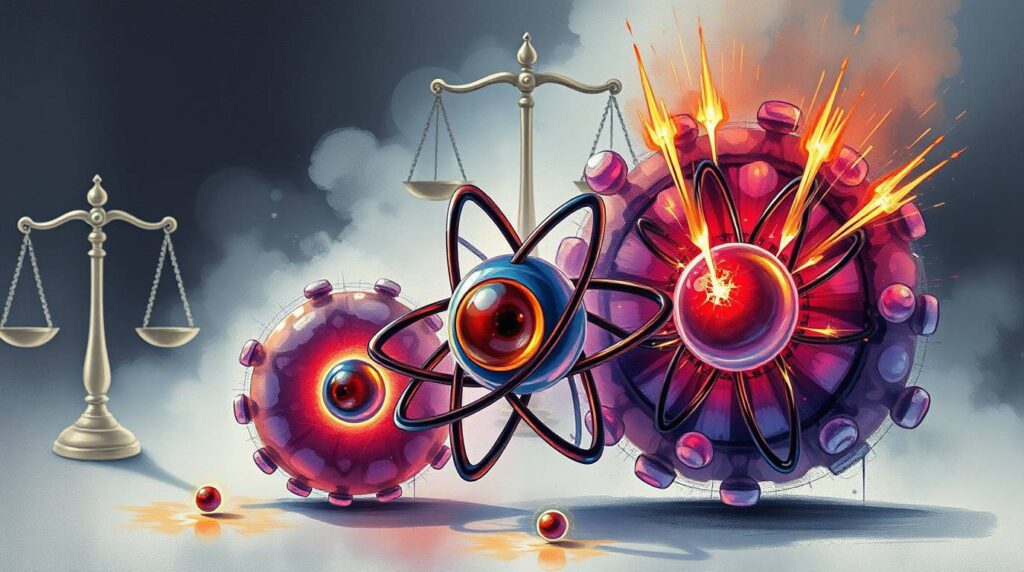
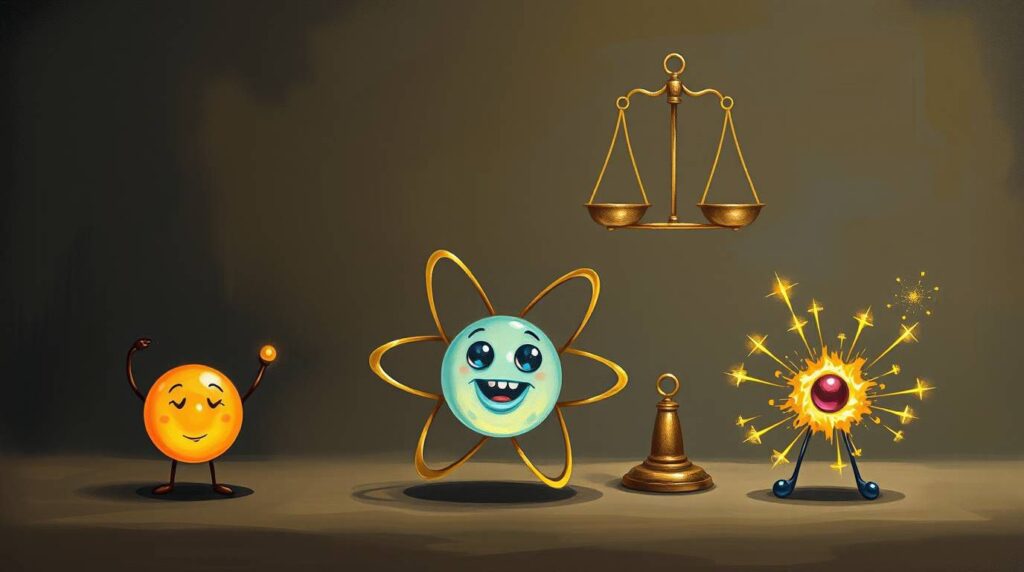
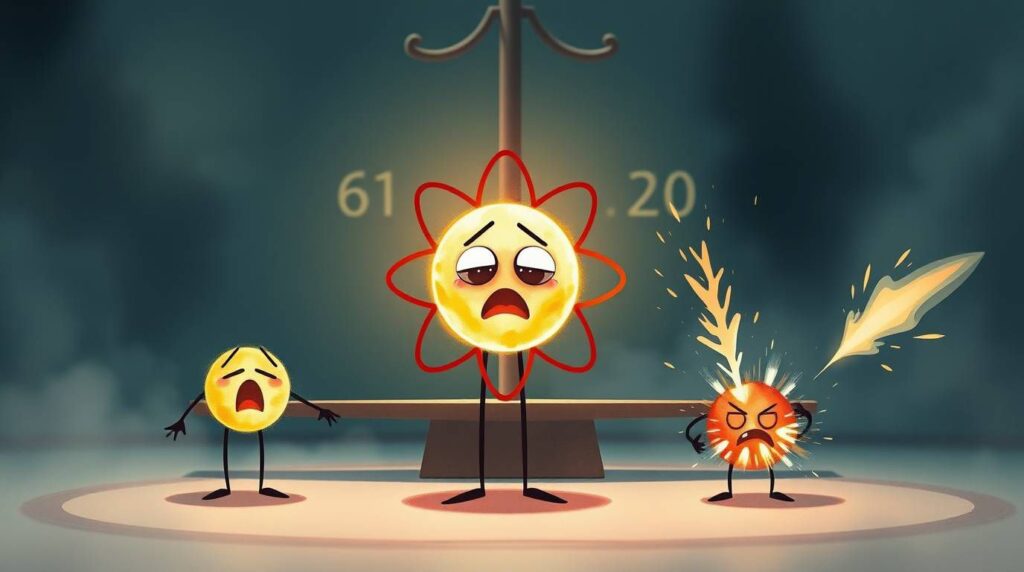
🔍 Real-World Example:
Let’s talk about Carbon again:
- 🟢 Carbon-12 and Carbon-13? Super stable.
- 🔴 Carbon-14? Radioactive.
Why? Because Carbon-14 has too many neutrons. It’s unbalanced, and over time it decays into Nitrogen-14 by kicking out stuff from its nucleus. This decay process is actually how carbon dating works in archaeology! (Fun bonus fact.)
—
🧠 But Why Does Neutron Number Even Matter That Much?
Neutrons aren’t just space fillers. They’re the glue that keeps the positively charged protons from repelling each other out of the nucleus.
Too few neutrons = too much repulsion = unstable.
Too many = unnecessary weight = also unstable.
It’s like trying to build a LEGO tower with mismatched pieces — eventually, it falls apart if it’s not balanced right. 🧱
—
🤔 In Summary:
✅ Isotopes are versions of the same element with different numbers of neutrons.
✅ Their nuclear stability depends on the neutron-to-proton ratio.
✅ If the balance is off — boom 💥 — instability and radioactive decay.
Nature loves balance. When atoms lose it, they get a little chaotic.
—
📌 Disclaimer:
This easy version is meant to help you understand the concept better. If your exam or teacher expects a textbook explanation and you write this one instead, we’re not responsible if it affects your marks. Use this for understanding, not copy-pasting.
—
🔗 Related Articles from EdgyThoughts.com:
Why does memory become unreliable over time?
https://edgythoughts.com/why-does-memory-become-unreliable-over-time/
🌐 External Resource:
Want to go nuclear (pun intended)?
Check out:
Wikipedia – Isotope
https://en.wikipedia.org/wiki/Isotope
—
How does music impact studying and focus?
https://edgythoughts.com/how-does-music-impact-studying-and-focus/
Can Venusian asteroids threaten Earth’s safety?
https://edgythoughts.com/can-venusian-asteroids-threaten-earths-safety/
